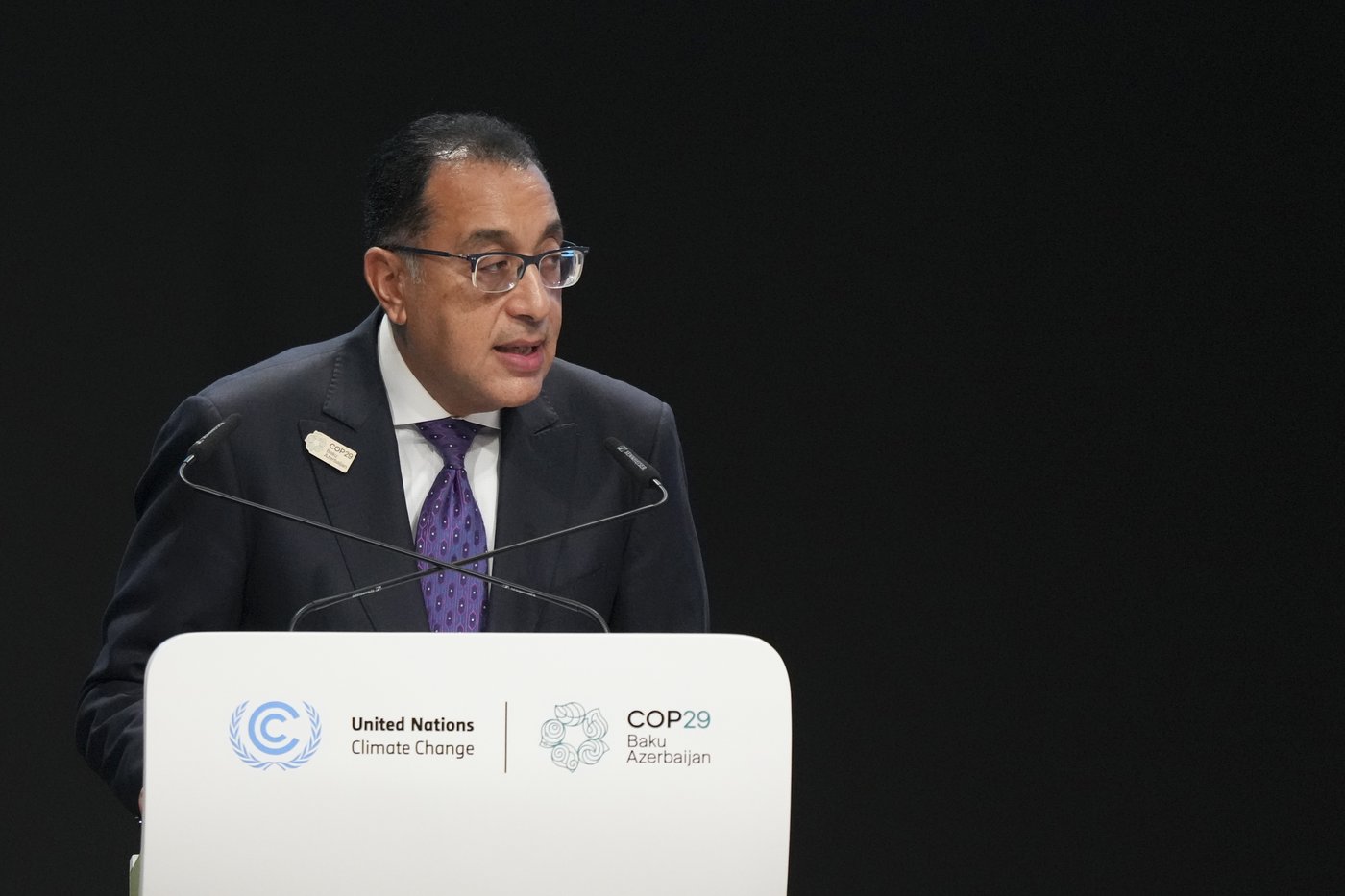
Egypt’s prime minister briefly pauses a news conference after feeling dizzy
CAIRO (AP) — Egypt’s prime minister was forced to briefly pause a televised news conference on Wednesday after experiencing some dizziness, a government spokesperson said.
Prime Minister Mustafa Madbouly, 58, was speaking at the new administrative capital in Cairo during his weekly Cabinet news briefing when he felt unwell, grabbed the microphone stand tightly and asked for a pause.
According to Cabinet spokesperson Mohamed el-Homsani, the prime minister felt dizzy and had to pause his remarks but was soon better and resumed the briefing after a few minutes.
Madbouly was speaking about President Abdel Fattah el-Sissi ‘s meetings at home and abroad.
El-Homsani said Madbouli was exhausted, had experienced a severe cold days earlier but refused to rest and was tired after leaving the office late Tuesday. He also had several meetings on Wednesday morning, before the news conference, the spokesperson said, adding that the prime minister is taking medication, including antibiotics.
Madbouly, an architect by profession, became prime minister in 2018.
Egypt is hosting an eight-country economic cooperation summit in Cairo on Thursday with Indonesia, Malaysia, Bangladesh, Pakistan, Iran, Nigeria and Turkey due to attend the gathering.
Join the Conversation!
Want to share your thoughts, add context, or connect with others in your community?
You must be logged in to post a comment.


















